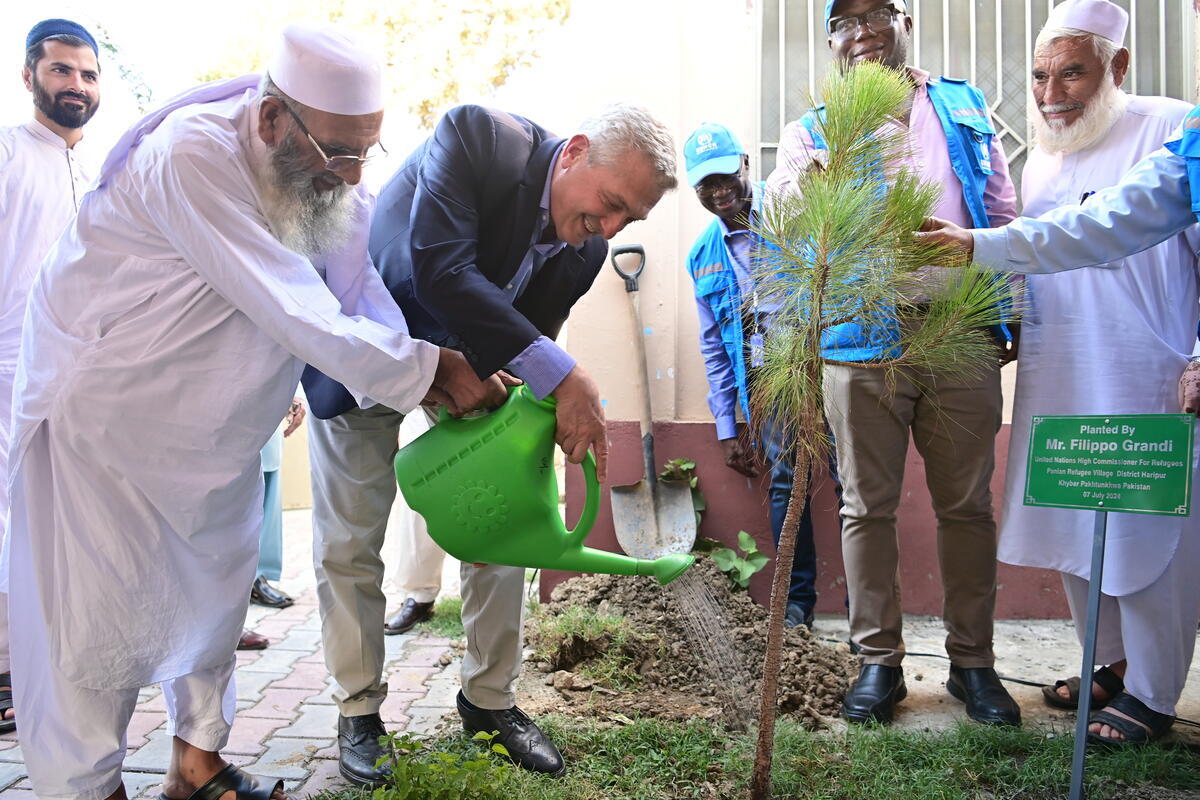Number of Afghan refugees arriving in Pakistan increases sharply
Number of Afghan refugees arriving in Pakistan increases sharply

QUETTA, Pakistan, Oct. 17 (UNHCR) - The number of Afghans arriving in Pakistan's Baluchistan Province has increased sharply, with about 8,000 persons believed to have crossed in the Chaman area alone during the past four days, the U.N. refugee agency reported Wednesday.
The agency said some 3,000 refugees crossed on Monday and another 2,000 on Tuesday. Previous, unconfirmed reports indicated there were about 1,000 new arrivals daily into the province, with a similar number entering North-West Frontier Province.
Reports from the border suggest that the general physical condition of the new arrivals has visibly deteriorated in recent days. The Pakistani authorities continue to allow "humanitarian cases" to enter the country for treatment, although the border with Afghanistan is officially closed.
In another development, the refugee agency said its teams and local Pakistani government officials on Tuesday visited several proposed sites for new camps in both Baluchistan and North-West Frontier Provinces. Two sites, Tor Tangi and Roghani south of Chaman, are likely to be the first camps to become operational in Baluchistan Province.
A UNHCR team that visited the Malkana sites in the Shalman area of North-West Frontier Province said it would be possible to reach the Kabul River eight kilometres away, making the sites viable from a water point of view. "However," the agency added, "the water would have to be taken from the river to a point higher up, at a safe distance from the Afghan border, where it would be filtered and then transported to the camps."
The agency estimated it would take 30 to 40 tanker trucks to transport about 300,000 litres of water a day to supply some 30,000 refugees at the three sites in Malkana.
The newly arrived refugees in Quetta said many more vehicles are now travelling to the Pakistan border from the southern Afghan city of Kandahar, the stronghold of the ruling Taliban. The refugees also reported that the town of Kichla Jadid, east of Kandahar, was heavily damaged, leading to an outpouring of civilians from the area.
Villagers from Killi Faizo in the Malabad district in Kandahar Province are also reported to have fled in large numbers, according to the refugee agency. Other refugees are arriving from points much further than Kandahar, including Wardak Province, west of Kabul in the north-east, and Mazar-i-Sharif in the country's far north.
In another development, UNHCR said it expected a relief flight with 6,200 plastic sheets and 10,350 blankets to arrive in Quetta from Denmark on Thursday. A second flight from Norway to Quetta is expected in the coming days, bringing plastic sheets, registration materials, and large tent structures known as Rubbhalls that can serve as moveable warehouses.








